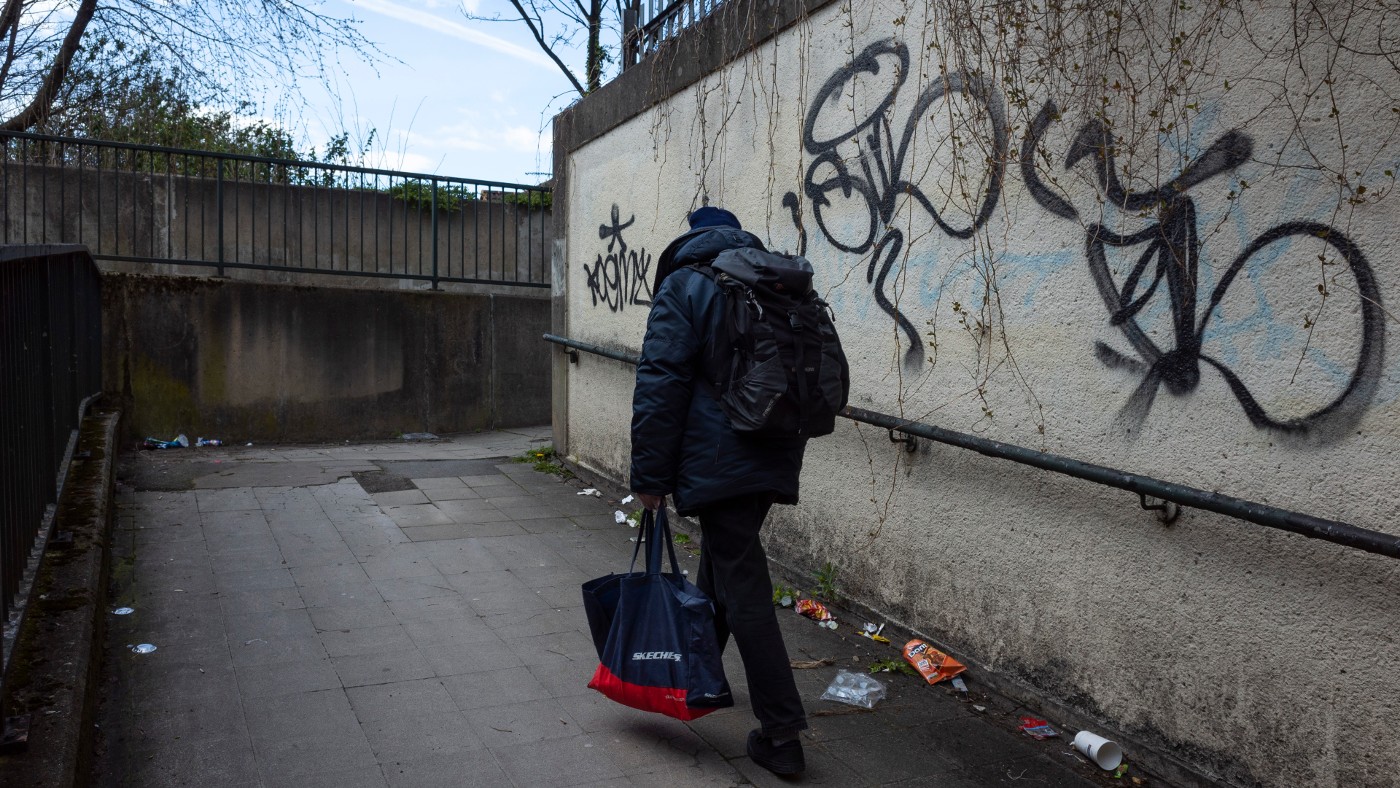Cost-of-living crisis: is the UK over the worst of it?
Inflation data showing sharp falls in price rises will bring ‘sighs of relief in government’, but food prices may not ever come back down

A free daily email with the biggest news stories of the day – and the best features from TheWeek.com
You are now subscribed
Your newsletter sign-up was successful
The rate of price rises has fallen sharply, according to official figures, leading some experts to suggest that the UK may be getting past the worst of the cost-of-living crisis.
The consumer price index (CPI) measure of inflation fell to 6.8% in the year to July, dropping sharply from a rate of 7.9% in June, Office for National Statistics (ONS) data showed.
The news will likely bring “sighs of relief in government” this morning, said Sky News political correspondent Tamara Cohen. The downward trend is “especially good news for Prime Minister Rishi Sunak”, Cohen added, considering his previous pledge to halve inflation before the end of 2023, made when inflation stood at 10.1%.
The Week
Escape your echo chamber. Get the facts behind the news, plus analysis from multiple perspectives.

Sign up for The Week's Free Newsletters
From our morning news briefing to a weekly Good News Newsletter, get the best of The Week delivered directly to your inbox.
From our morning news briefing to a weekly Good News Newsletter, get the best of The Week delivered directly to your inbox.
But not all commentators are convinced that the news heralds the beginning of the end for UK consumers’ struggle with rising prices.
What did the papers say?
The cost-of-living crisis now “appears to be coming to an end”, one economist told This Is Money ahead of the release of this morning’s figures.
Ashley Webb of Capital Economics told the website that inflation was expected to remain below pay expansion for the rest of the year. If the prediction holds true, this would mean “households would finally begin to recover some spending power after almost a year of crippling price rises”, This is Money said.
The fall has been “partly put down to a decrease in energy prices which spiked after Russia invaded Ukraine”, said LBC.
A free daily email with the biggest news stories of the day – and the best features from TheWeek.com
Chancellor of the Exchequer Jeremy Hunt welcomed the news, saying: “The decisive action we’ve taken to tackle inflation is working, and the rate now stands at its lowest level since February last year.”
However, Hunt cautioned against complacency, adding that “while price rises are slowing, we’re not at the finish line. We must stick to our plan to halve inflation this year and get it back to the 2% target as soon as possible.”
Reacting to the data, Labour’s shadow chancellor Rachel Reeves said that “inflation in Britain remains high and higher than many other major economies” and “working people are worse off – with higher energy bills and prices in the shops” after 13 years of “economic chaos”.
She added: “Labour’s plan to build a strong economy will make working people better off by boosting growth, improving living standards and cutting household bills.”
According to the Financial Times, rather than hoping for a return to cheaper prices, Britain’s middle-class consumers are simply “adapting to rising living costs” by cutting back on non-essential food shopping and choosing more economical options.
Inflation and interest rates “are eating into the spending power of the key demographic group”, the newspaper said, with many better-off consumers now prioritising “financial resilience over spending”.
What next?
Many people across the UK will “feel relief at news that the cost-of-living crisis is set to come to an end”, said Metro. However, the chief economist of the Bank of England, Huw Pill, has warned that a return to cheaper food is not necessarily on the cards.
Pill said last week that although the rate at which food prices are rising was expected to slow to “about 10% by the end of the year”, food prices falling to their former levels was “something we may not be seeing for a while yet, if in the future at all”.
Though the government has treated this morning’s figures as unimpeachably good news, the “real story this morning is that core inflation – stripping out energy, food, alcohol and tobacco – has remained exactly where it was in June, at 6.9%”, said City AM.
This means that while Bank of England governor Andrew Bailey “may be feeling a degree of relief this morning… it’s hard to see a world in which the Monetary Policy Committee aren’t forced into at least one further rate hike when they next meet, once they dig into the small print”, the site said.
And according to the BBC’s cost-of-living correspondent Kevin Peachey, each new rate rise equates to “further pain for some homeowners, but better news for savers”.
However, Peachey added, even the positive news for savers is nuanced, because “although many savings accounts are paying more, even the best interest rates aren’t keeping up with inflation, which means the value of cash savings – its buying power – is falling in real terms.”
Arion McNicoll is a freelance writer at The Week Digital and was previously the UK website’s editor. He has also held senior editorial roles at CNN, The Times and The Sunday Times. Along with his writing work, he co-hosts “Today in History with The Retrospectors”, Rethink Audio’s flagship daily podcast, and is a regular panellist (and occasional stand-in host) on “The Week Unwrapped”. He is also a judge for The Publisher Podcast Awards.